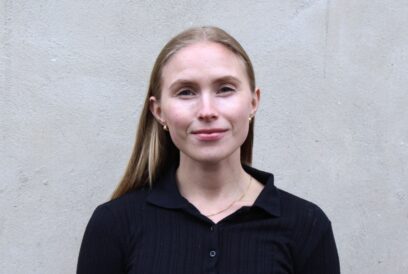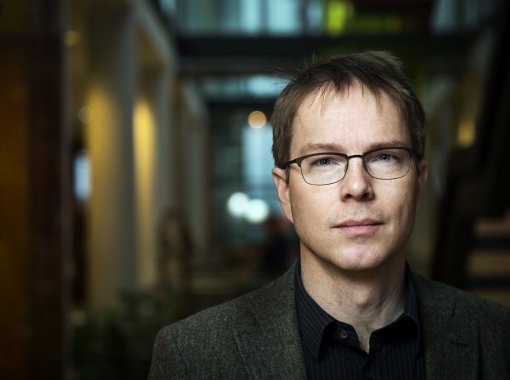Polarisation is an obstacle to peace and equality, but lifelong learning can play a key role in reducing it, says Prof. Ólafur Páll Jónsson of the University of Iceland’s School of Education.
Amid a time of violence, peace is the main theme of Iceland’s Nordic Council presidency in 2023. Its programme stresses that peace is a prerequisite for human rights including gender equality, welfare and environmental protection.
Ólafur Páll Jónsson, Professor of Philosophy at the University of Iceland’s School of Education, echoes this theme as he points to the role of education – including lifelong learning – in dispelling polarisation that so often prevents peace.
In Jónsson’s view, polarisation and hate speech create two kinds of threats, starting with the direct threat to those who are targeted, either as individuals or as groups.
“Individuals or groups who are targets of hate speech may be marginalised, silenced and made more vulnerable – even defenceless – against other kinds of violence. Increased polarisation amplifies the effect of hate speech while making the ground for such speech more fertile,” he points out.
Secondly, he says, there is a broader threat to society as a whole.
“Polarisation and hate speech undermine the culture of communication and openness across lines of difference, which is a precondition for a functioning democracy. In this sense, hate speech and increased polarisation are threats to all of us in society, whether we’re targeted or not. In other words, hate speech and polarisation are direct threats to the fundamental values on which diverse, democratic societies are built,” says Jónsson.
Broad democratic culture needed
Democratic institutions cannot make society democratic without a broader democratic culture, he says.
“Without democratic culture, it is doubtful that human rights, even if they’re legally binding, will have actual, lived value for the vulnerable people who need them most,” says Jónsson, noting that this is the basis for recent work by the Council of Europe on competences for democratic culture.
Without democratic culture, it is doubtful that human rights will have actual value for vulnerable people.
Openness to cultural otherness and to others’ beliefs, world views and practices are among the fundamental elements – and these are areas where adult education can play a key role.
“Adult education is no less important than primary and secondary education in combating polarisation and hate speech. However, education, whether for adults or children and youth, does, not necessarily help in this respect simply by being education. Through education, people can become humble, open-minded citizens – but they can also become arrogant, narrow-minded and locked in their own circles,” Jónsson observes.
Adult education as impetus to change
As he sees it, education is too often conformist in nature, designed to reproduce the current ideology and culture.
“If the culture is divisive, hateful or competitive rather than caring and cooperative, education that reproduces the surrounding cultural values won’t help in combating polarisation and hate speech.”
When cultures are divisive, adult education is essential for a change towards more democratic, inclusive society, says Jónsson.
“For real change to happen, adult education is needed – but again, this must be critical, even radical, adult education based on inclusive and democratic values,” he argues. “And it must reach diverse groups of people.”
For real change to happen, adult education based on inclusive and democratic values is needed.
Jónsson cites the words of Brazilian educator and philosopher Paulo Freire (1921–1997), who wrote in his 1968 book Pedagogy of the Oppressed: “There’s no such thing as neutral education. Education either functions as an instrument to bring about conformity or freedom.”
“It’s important to bear this in mind. All education is either for change or the status quo. And if it’s for change, educators must make sure that the change is toward a more democratic society where equality and human rights are upheld,” says Jónsson.
Free of charge, free of monetary pressure
What kinds of concrete measures does he suggest toward these ends?
“The first measure is to make diverse adult education available free of charge, or only for a minimal fee. There’s a gross paradox in the idea that education is the medium of change, while then making large sectors of education the privilege of the wealthy, those who have free time and solid cultural capital,” he observes.
“A second step would be to normalise adult education that is for personal growth. Much adult education is narrowly geared towards advancing one’s position in the labour market – increasing one’s monetary worth, as it were. Such education may actually work contrary to the values of democracy, equality and human rights.”
Learning centres empower people
Iceland’s regional lifelong learning centres have played a key role in promoting openness and reducing polarisation, the professor says, adding that they have been important levers for social mobility and geographic mobility, while sometimes opening a path to further education, often at the university level.
“The centres have also played a key role in providing educational opportunities for local people to learn more about their own regions, get broader perspectives on the cultural and environmental values of their surroundings and see new opportunities for cultural and economic development. In short, these centres have been tremendously empowering for many people.”
They can also be hotbeds of societal discussion on crucial issues such as violence, whether on the intimate or international level.
“A few years ago, I joined other scholars and practitioners at a seminar for teachers at a regional lifelong learning centre,” recalls Jónsson. “I was asked to address this question: How can we solve disagreement without violence?”
“This led to an extended dialogue on whether disagreements can ever be solved with violence or what it means, in the first place, to solve a disagreement. It’s clear that violence can sometimes end or quench disagreement or a conflict – but such an ending rarely qualifies as a solution.”
Imagining Peace in Iceland
In 2023, Iceland has led the Nordic Council of Ministers with a year-long presidency focusing on the theme of the Nordic region as a force for peace.
“Peace is the prerequisite for human rights, especially women’s rights, social stability and environmental protection,” the Presidency programme declares.
Noting that “the effects of Russia’s invasion of Ukraine are being felt across Europe and beyond,” it points out that while violence and the threat of it are part of the daily lives of women, LGBTI+ people and other groups, “but in times of war this is multiplied and has an even stronger effect on the personal situation of vulnerable groups”.
Peace is also essential to be able to fight against climate change, maintain social stability and increase equity, the Icelandic agenda goes on to say.
While we are all confronted with the thorny, painful obstacles to peace in our daily news headlines, the Icelandic presidency aimed to develop some hopeful measures toward halting violence.
In October, Reykjavík hosted the Imagine Forum: Nordic Solidarity for Peace, a two-day event aimed at strengthening Nordic cooperation for peace.
Speakers included the mayors of Reykjavík, Helsinki, and Lviv, Ukraine, as well as representatives of Nordic peace research institutes. These included the Crisis Management Initiative founded by former Finnish president and Nobel Peace Prize laureate Martti Ahtisaari, who died just a few days after the conference.
The Imagine Forum is organised every year in connection with the lighting of Yoko Ono’s installation “Imagine Peace Tower” on an island outside Reykjavík, which commemorates John Lennon.
On 1 January 2024, Sweden takes over the Presidency. Its programme, too, cites uncertain times including war in Ukraine and the Middle East. Sweden plans to focus on promoting the democratic values and human rights that epitomise Nordic society – and which life-long education can reinforce.









